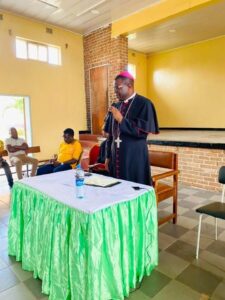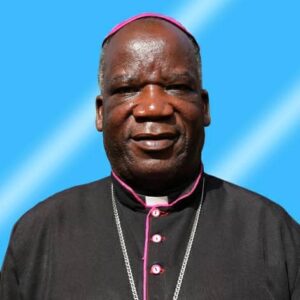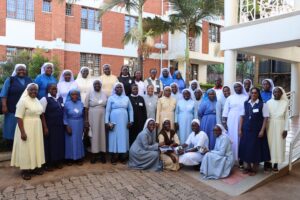AMECEA: “Communication is The DNA of Church,” Bishop Franzelli to AMECEA National Coordinators
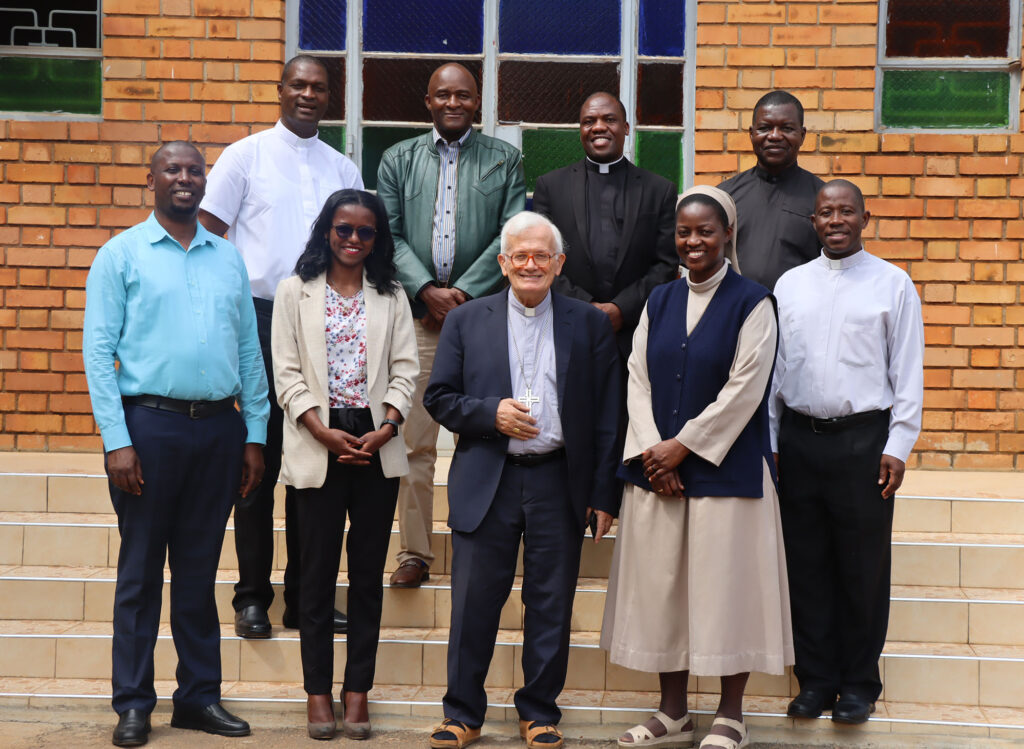
AMECEA Communication Coordinators posse for a photo during annual meeting in Uganda
Sr. Jecinter Antoinette Okoth, FSSA
In a bid to promote the significance and role of communication in the Church, Bishop Emeritus Bishop of Uganda’s Catholic Diocese of Lira has emphasized that it is an element which is part and parcel of the Church’s mission and cannot be avoided.
Addressing Communication National Coordinators from the Association of Member Episcopal Conferences in Eastern Africa (AMECEA) during their annual planning meeting, the Uganda Episcopal Conference’s (UEC) Chairman for the Commission of Social Communications Bishop Giuseppe Franzelli shared saying that “Communication is in the DNA of the Church.
Comparing communication to a substance in human body that must be present for growth and development, the Bishop Emeritus who is member of Comboni Missionaries of the Heart of Jesus (MCCJ) expounded: “If we stop communicating, the Church stops existing. We must know that this, if Christ did not go on communicating to us the love of God we wouldn’t have the information.”
The Italian prelate who served in Lira Diocese for over a decade before his resignation after attaining the mandatory retirement age of 75 years for the bishops, reminded the National Coordinators that the work of communication is service in the pastoral ministry of the Church which should not be taken for granted but should be a uniting factor.
“Our apostolate is social communication which is bringing people together, communicating, and of course offering actual messages which is good news of God’s love to all his children whether Catholics or non-Catholics. That is our service to the Church, it is not just any other work but a mission,” Bishop Franzelli underscored.
He reminded the Communication Coordinators of Pope Francis message for the 56th World Day of Social Communication, on the need of listening with the ear of the heart so as to understand “people’s situation, fears, hopes and problems.”
“The Pope has reminded the whole Church to listen with the Heart. As communicators our role is to inform and educate the people of God, and the most essential part of communication for it to be more effective and to reach people the right way is that it must be based on keen listening,” the Bishop said while addressing the participants who were at Ulrika guest in Kampala Archdiocese, Uganda during their five-day annual meeting.
He continued, “It is our task to make the voices of other people be heard hence the need to go out and listen to them. This means our communication must be reflective and this can only be possible when listening with the heart.”
In his emphasis message on Tuesday, November 15, the Prelate posed concerns to the participants for reflection asking, “Are we listening to the cries and hopes of the people? Are we able to listen to their spiritual needs? Can we help people to see the presence of God amidst their situations?

In Pope Francis’ message for the 56th World day of Social Communication that was marked Sunday, May 29, the Pontiff note that “listening means not only the perception of sound, but is essentially linked to the dialogical relationship between God and humanity.”
He pointing out St. Paul’s message to the Romans that “faith comes through listening,” and reminded Catholic communicators that “In order to provide solid, balanced, and complete information, it is necessary to listen for a long time (and) to recount an event or describe an experience in news reporting.” At the same time, “It is essential to know how to listen, to be ready to change one’s mind and to modify one’s initial assumptions.”
The Bishop disclosed further that most dioceses have not recognized the role of communication in the Church which is a key department to help in disseminating information to the people on what the Church does.
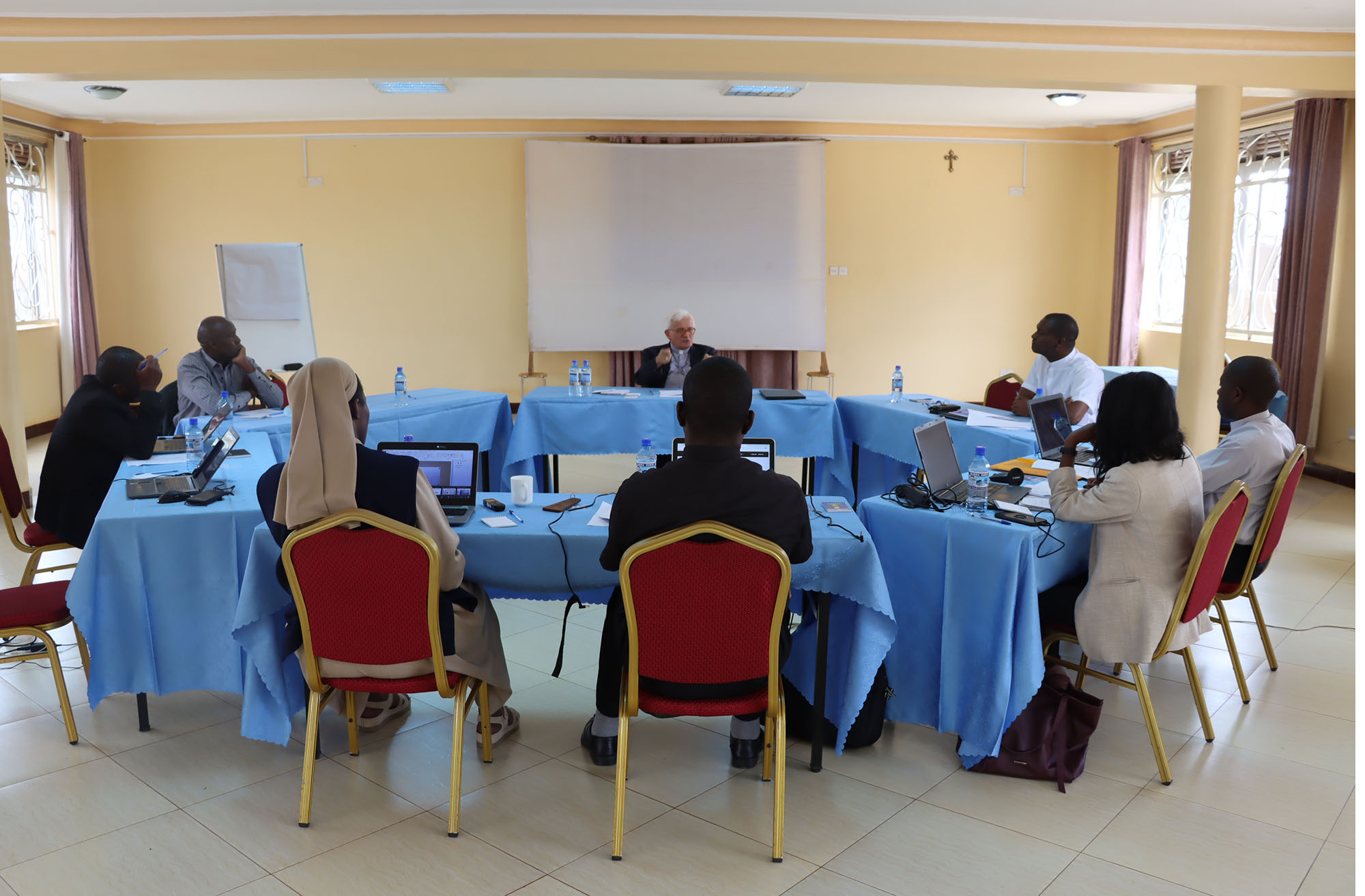
“I have realized that communication is not given a priority in many dioceses and many people have not grasped it that communication cuts across and is an essential component in each department and commission of the conferences,” Bishop Franzelli shared his observation and narrated further, “Communication department is at the service of all the departments with the aim of making people know and understand what other departments are doing in the Church.”
“The Church is doing a lot and it’s the communication people to disseminate this information,” he said and asked the National coordinators to help the conferences understand their role by first of all “improving the internal communication with the departments.”
